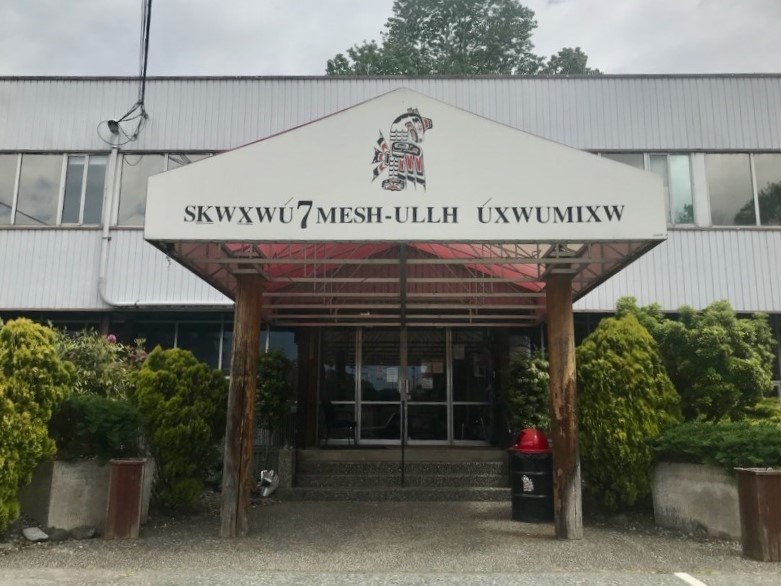About 140 years after in this country and 27 years after the last one closed, the (�鶹�����Nation) has taken a giant step toward reclaiming the education of its children.
Technically, this means seeking a Jurisdiction Agreement — an education agreement between the Government of Canada and the Nation.
The vision is for �鶹�����Nation children going to school to be immersed in �鶹�����Nation culture, learning the Sḵwx̱wú7mesh sníchim (�鶹�����language) and having more land-based learning.
In December, 87.5% of voters in a Nation referendum said they wanted leadership to pursue the s7ulh wa nexwniw̓éyalh (Our Ways of Education) project.
The vote was considered an endorsement of the Nation moving forward in creating an Education Law if 60% of votes were in favour.
Before the vote, extensive consultation was done with everyone they could reach, including Elders and Nation teachers.
It was an overwhelming endorsement of the project, said Nation councillor and spokesperson Sxwíxwtn Wilson Williams.
The law will allow the Nation to control elements of preschool to Grade 12 education on reserve.
These elements include control of the governance processes, education standards, graduation requirements, certification of teachers and schools, and consultation and decision-making requirements, among other things.
This is one step in a long journey to reclaim the teaching of Nation children and it is a move toward self-governance.
Much of the finer details are still to be determined with further member consultation, said Williams.
"The first word that comes to mind is empowerment. We are really taking control back into creating a law — education jurisdiction law — that's in our control. And we are going to pave out what that looks like," he said.
"If we look at the bigger, broader perspective, we're implementing our ways of life. We're oral peoples. We're bringing our ways of life back to before colonialism. We've always visited the land, and learned off the land, but learned from our ancestors and our old people on the ways of life and how to survive. We're bringing that back, but more than a sense of more than just traditions and culture, we're bringing our language back."
Why?
In , Nation members, including some from Squamish, explain the pain of their experience at either residential or public schools.
Charlene Williams describes how she did not see herself in public school.
"From my own experience, I can say that the education system did me a disservice," she said.
"It was not a safe place for me. It was not a safe place where I felt like I belonged. It wasn't a place where I felt like my culture and our way of being were respected."
She went on to say that in Sḵwx̱wú7mesh culture, Elders look for gifts in young ones, and then they try to help those gifts blossom. That is the basis of education and teaching in the culture, she added.
The reason for taking control of education is to have mén̓ men (children) taught based on the Sḵwx̱wú7mesh worldview so they will grow up proud and confident of their heritage and values.
Other nations already doing this
The Nation is not the first to pursue control of its education system: ʔaq’am (Ktunaxa Nation in East Kootenay), Lil’wat Nation, Seabird Island, and Ditidaht First Nation and Cowichan Tribes on Vancouver Island have signed Education Jurisdiction Agreements with the federal government.
Step toward self-governance
When the law becomes a reality, would no longer apply to the Nation.
High level
Williams stressed that many more details will be worked out with members during continuing consultation, but a few specifics were stated in before the referendum.
When the schools first open, they will be for members only, but that could change in time.
The goal is to expand to have a Nation school in the �鶹�����Valley.
The Nation would create a Community Education Authority (CEA), which would be under the provincial Societies Act to operate in-community schools.
This is like a traditional school board.
Williams said there is a rough timeline, but getting a draft law right is more important than getting it done quickly.
"We want to develop a committee and a strategy that will make sense. And with that will be an ideal timeline. We're hoping that, if it is not a year out, then it will hopefully be two years out where we look at drafts and sort of go from there. I'm just excited that at this point, where we can move further with our heads held high and really look at the future."
Find out more about the project on the .








